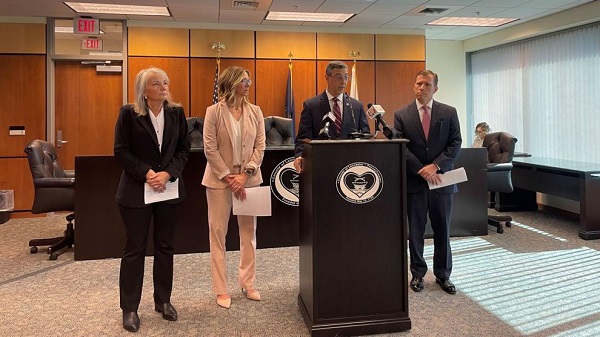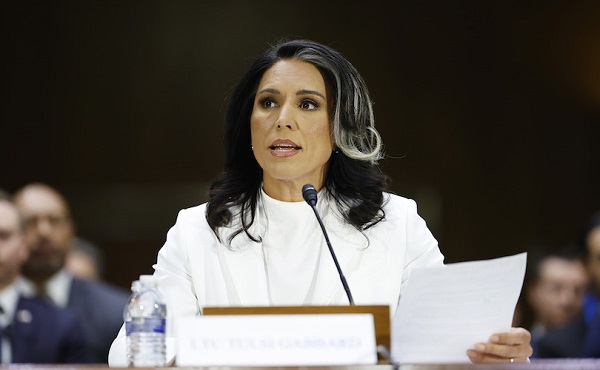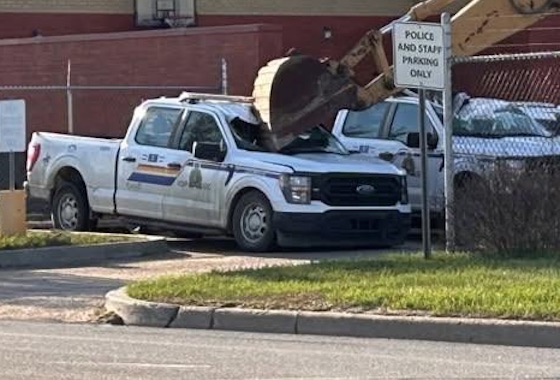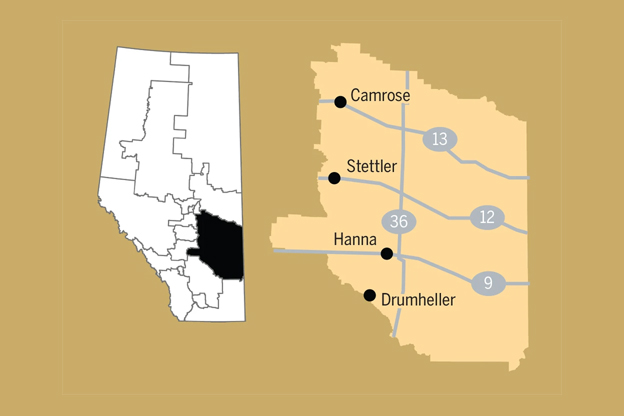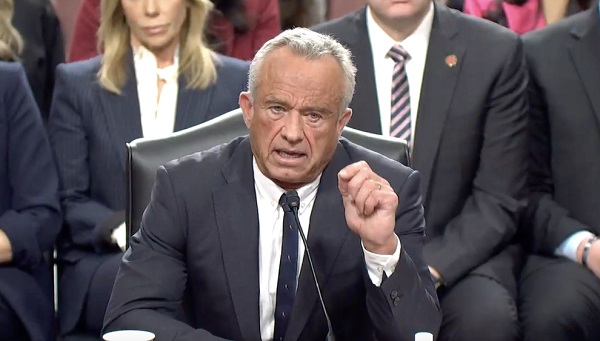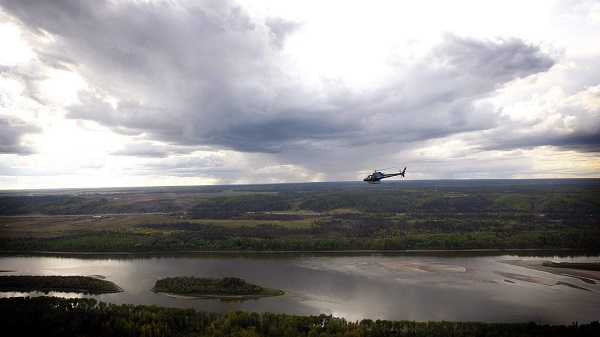From left, Lancaster County Commissioner Alice Yoder, Lancaster County District Attorney Heather Adams, Commissioners Ray D’Agostino and Josh Parsons. The officials held a press conference on Friday, Oct. 25, 2024, to discuss voter registration fraud detected in the county.
From The Center Square
Everybody Votes runs an office in Lancaster County, where election workers recently found suspicious registration forms among a batch of 2,500 applications delivered last week. Investigators there said at least 60% of those reviewed were fraudulent.
The media and consulting firm linked to fraudulent voter registration forms in Pennsylvania earlier this week has gone dark as of Saturday.
Field and Media Corps – the website and social media accounts of which are now defunct – is an Arizona-based company that contracts with Everybody Votes to run a canvassing operation in Pennsylvania and other states that target low-income minority residents unregistered to vote.
The Monroe County District Attorney’s Office confirmed Wednesday that 30 registration forms contained fraudulent information, including an application submitted on behalf of a dead resident.
Everybody Votes runs an office in Lancaster County, where election workers recently found suspicious registration forms among a batch of 2,500 applications delivered last week. Investigators there said at least 60% of those reviewed were fraudulent. So far, the campaign has not been tied directly to the investigation.
Not so in nearby York County, where law enforcement continues reviewing another delivery from the operation leading up to the Oct. 22 deadline to register.
On Wednesday, the America First Policy Institute, a conservative-leaning research nonprofit, demanded a federal investigation into the company.
“Where there’s fire, there’s fire,” said Hogan Gidley, vice chairman of the institute’s Center for Election Integrity. “Thousands of instances of reported voter registration fraud have now been confirmed throughout Pennsylvania.”
He described Field and Media Corps, established in 2017, as a “high-powered left-wing organization” that may have launched similar “schemes” across the country that require state-level investigations.
“Submitting fraudulent registrations right at the voter deadline to overwhelm election officials is exactly the kind of scheme that the Department of Justice should be using their force and resources to stop,” he said.
Evidence also exists that Everybody Votes is linked to a left-wing super political action committee intent on expanding registration numbers for Democrats in battleground states.
According to public tax records shared with The Center Square, The Voter Registration Project, also known as Everybody Votes, describes itself as a public charity that helps low-income minority citizens register to vote and provides technical assistance to voter registration drives.
The organization reported $45.8 million in total revenues in 2022, a “substantial portion of which comes from a governmental unit or the general public.”
A 2023 report from Capital Research Center, a conservative nonprofit, says left-wing donors together raised $190 million for the campaign to register 5.1 million voters across the country – all in violation of federal law that bars 501(c)(3) from engaging in such activity.
The strategy, detailed in a 2019 leaked memo from Mind the Gap, the liberal super PAC in question, entices investors by promising a more cost-effective strategy to boost vote counts for Democrats – namely through voter registration drives.
The group pointed to its direct role in flipping the U.S. House blue in 2018 as “proof of concept.”
Detailed further in the report are signed tax forms from donors that link their grants to the Voter Registration Project in direct support of Mind the Gap. The Capital Research Center estimates President Joe Biden collected between 1 million and 2.7 million swing state votes in the 2020 election as a result.
Biden defeated then-incumbent President Donald Trump 306-232 in electoral college votes; the popular vote was Biden 81.2 million to 74.2 million.
Francisco Heredia, who runs Field and Media Corps, told Votebeat earlier this week he’d not heard from county officials in Pennsylvania, but would cooperate with the investigation. He said the company trains workers how to legally complete registration forms and has no tolerance for fraud.
